News
-
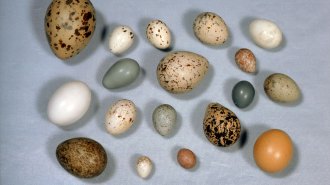 Math
MathAn elusive equation describing bird eggs of all shapes has been found at last
A new mathematical equation describes bird eggs of all shapes found in nature, and it could have applications in food and agricultural research.
-
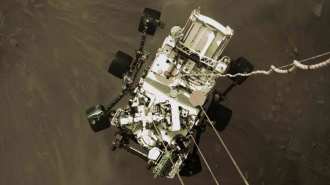 Planetary Science
Planetary ScienceWhat the Perseverance rover’s quiet landing reveals about meteor strikes on Mars
InSight tried to detect seismic waves created by the arrival of its sister mission, helping scientists uncover how Mars absorbs energy from impacts.
By Freda Kreier -
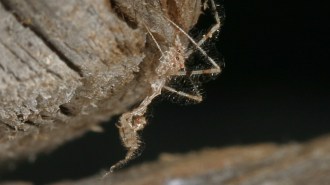 Animals
AnimalsAssassin bugs tap spiders to distract them before a lethal strike
Some assassin bugs stroke their antennae on spiders when within striking distance, possibly imitating touches that spiders experience near their kin.
By Jake Buehler -
 Health & Medicine
Health & MedicineThe antidepressant fluvoxamine can keep COVID-19 patients out of the hospital
A 10-day course of fluvoxamine sharply reduced hospital visits and deaths, raising hopes for an easy at-home treatment for COVID-19.
-
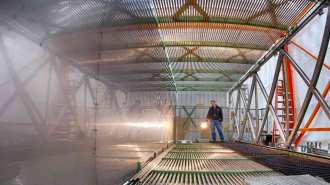 Particle Physics
Particle PhysicsDoubt cast on theorized ‘sterile’ particles leaves a neutrino mystery unsolved
MicroBooNE weakens the case for sterile neutrinos, but the mystery that shrouded earlier neutrino experiments remains.
-
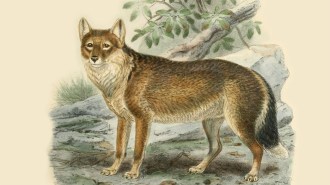 Humans
HumansAncient human visitors complicate the Falkland Islands wolf’s origin story
Scientists have debated how the Falkland Islands’ only land mammal journeyed to the region: by a long-ago land bridge or with people.
-
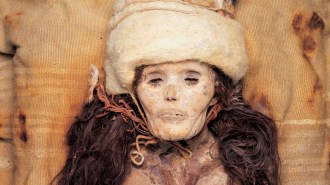 Genetics
GeneticsDNA from mysterious Asian mummies reveals their surprising ancestry
Ancient DNA indicates that an enigmatic Bronze Age group consisted of genetic, but not cultural, loners.
By Bruce Bower -
 Climate
ClimateEarth will warm 2.7 degrees Celsius based on current pledges to cut emissions
The world still lags on its commitments to lower greenhouse gas emissions and forestall the worst effects of global warming, a new U.N. report shows.
-
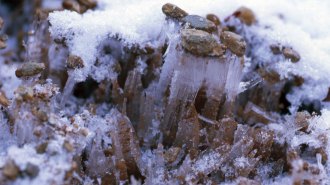 Earth
EarthHere’s how ice needles sculpt patterns into cold, rocky landscapes
Striking stone patterns decorate remote, frigid landscapes. The recipe for these naturally forming stripes and swirls: Freeze, thaw, repeat.
By Beth Geiger -
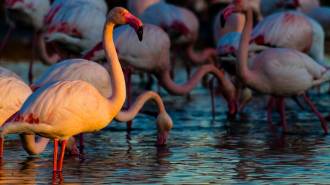 Animals
AnimalsFlamingos dye their sun-faded feathers to stay pretty in pink
During mating season, flamingos rub a makeup-like rouge on their necks to catch the eye of the opposite sex. They don’t bother once chicks are born.
-
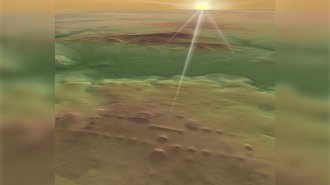 Archaeology
ArchaeologyLidar reveals a possible blueprint for many Olmec and Maya ceremonial sites
An Olmec site forged a building plan more than 3,000 years ago for widespread Olmec and Maya ritual centers across Mexico’s Gulf Coast.
By Bruce Bower -
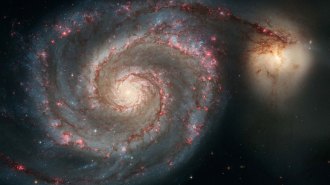 Astronomy
AstronomyAstronomers may have spotted the first known exoplanet in another galaxy
The spiral-shaped Whirlpool galaxy may be the host of the first planet spotted outside of the Milky Way.